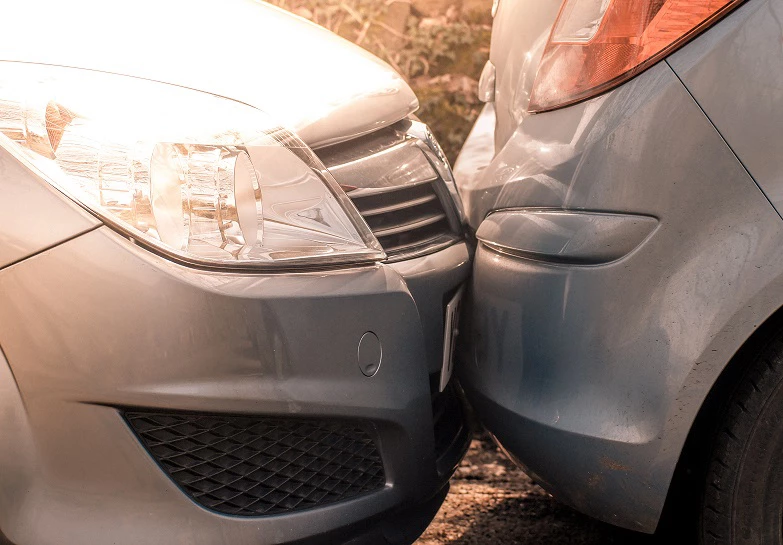08/12/2020 | Category: Commercial Insurance

With data from the Health and Safety Executive (HSE) revealing that 111 workers were killed at work in 2019/20, it pays to be aware of the risks. And those risks vary depending on your place of work - whether that’s an office, a construction site, a farm or a garage.
Looking at the motor vehicle repair industry alone, the HSE has recorded over 7,000 injuries and 33 deaths over the last 5 years. Finding the best motor trade insurance to protect you and your employees from the fall-out from these accidents is therefore a vital part of safe business practice.
While there are clear risks to workers in the motor trade from falls, slips, lifting and moving heavy objects, fires and explosions, what about other more hidden risks?
Motor trade insurance can protect against not just obvious risks but also those you might not even be aware of. Read our guide to these hidden risks so you can protect yourself, your staff and customers – forewarned is forearmed after all.
Cyber threats
With the ever-changing nature of technology in our lives there are very few modern businesses that will remain unaffected by cyber threats. Criminals are constantly on the lookout for weaknesses in cyber defences through which they can steal valuable data.
Your business IT system will not only hold your own valuable financial information but also details of your customers and suppliers. Through criminal strategies like phishing emails, malware attacks and spoof websites, cyber criminals can gain access and cause untold damage to your finances and reputation.
Electric and hybrid vehicles
While electric and hybrid vehicles offer huge business opportunities, they also present their own safety challenges. For example, the all-important battery packs powering these vehicles can be potentially hazardous if they’re faulty, damaged or recharged incorrectly.
These can cause explosions or fires and even deliver a fatal electric shock. The HSE has produced valuable guidance on safe working with such vehicles.
Noise
The presence of large machinery and heavy tools means motor trade businesses can be extremely noisy places for workers. However, under the Control of Noise at Work Regulations, business owners are under a duty to put measures in place to ensure that employees can work safely without putting their hearing at risk.
These measures could include using room dividers and restricting the noisiest work to certain designated times and places. Floor mats and specialised wall panels can also reduce the effects of noise, while hearing protection should also be provided and worn where appropriate.
Noise-induced hearing loss is a serious condition caused by damage to the sensitive structures in the inner ear. It's therefore important employers take this danger seriously as there is no going back once hearing is damaged.
Unaccompanied car demonstrations
Allowing a customer to leave with a car for an unaccompanied test drive has clear implications if they’re involved in an accident. Always check driving licences and insurance cover to make sure you’re protected if they damage the vehicle or injure themselves or others.
Also make sure you’ve given them a clear safety demonstration and pointed out any unique characteristics of the car that they might be unused to. These checks should also be applied to those borrowing a courtesy car while theirs is repaired.
Vibration
The dangers resulting from vibration can be easily missed in the workplace as an employee’s exposure to it can vary widely. For example, a car valet will have a different level of exposure to this hazard than a tyre-fitter mechanic.
Under the Control of Vibration at Work Regulations employers are under a duty to assess and control this hazard in the workplace. Vibration can cause long-term painful damage to your hands and fingers, while shocks and jolts from driving certain types of vehicles can also cause severe back pain. The HSE has produced advice on reducing risks from this hazard.
Vibration-induced white finger, also known as Hand-Arm Vibration Syndrome (HAVS), is the most common condition among those operating handheld vibrating tools. Vibration can also cause damage to tendons, muscles, bones and joints, and can even affect the nervous system.
Workers affected by HAVS commonly report:
- Attacks of whitening of one or more fingers (particularly when exposed to cold).
- Tingling and loss of sensation in the fingers.
- Loss of light touch.
- Painful, cold feelings between white finger attacks.
- Loss of strength in their grip.
- Bone cysts in fingers and wrists.
The development of HAVS is gradual and will increase in severity over time if untreated. Such vibration damage can be difficult to spot as it can take from a few months to several years for the symptoms to become noticeable. Early prevention is really the only option.
Waste management
Waste produced by motor trade businesses can often be hazardous and pose a threat of fire and pollution if it’s not dealt with carefully. These hazardous materials include fuels, oils, anti-freeze, brake fluids, air bags, components containing mercury or asbestos, and any cloths contaminated with such substances.
In particular waste should be safely stored in metal containers with lockable lids. To comply with environmental legislation, different types of waste should not be stored together. Transportation and disposal should be done by someone holding an appropriate licence for that waste.
Motor trade insurance from Insurance Choice
Whatever the risks to your motor trade business, here at Insurance Choice we realise the importance of arranging the right insurance. That’s why our wide range of motor trade insurance policies are designed to be tailored to the unique requirements of your business.
We can offer insurance policies to include cover for:
- Road risk motor trade
- Cover for part- and full-time traders
- Cover for car valets
- Cover for mechanics
- Collection and delivery cover
For over 20 years we’ve specialised in providing insurance to the motor trade. To help businesses manage their finances we can also offer flexible payment options, which could include spreading the cost of your insurance in monthly instalments. A useful solution when times are tough.
Simply call us on 01384 429900 or fill in an online request and get a quote today.
Policy benefits, features and discounts offered may very between insurance schemes or cover selected and are subject to underwriting criteria. Information contained within this article is accurate at the time of publishing but may be subject to change.
Frequently asked questions
What is waste management important within the Motor Trade industry?
Waste management within the motor trade industry is absolutely critical, and for good reason. This sector is responsible for a significant amount of hazardous waste, including oils, batteries, and tyres, which can wreak havoc on our environment if not disposed of properly. Effective waste management ensures these materials are treated, recycled, or disposed of in a manner that minimises environmental impact.
Moreover, conscientious waste handling within the motor trade reflects a commitment to sustainability and corporate responsibility, enhancing industry reputation and safeguarding our planet for future generations. It's not just about compliance; it's about taking the wheel in driving forward a greener future. This positive waste management may also help retain customers who want to use sustainable businesses. If you want to learn more ways on how to keep customers coming back to your garage business, read our full blog.
How can health and safety training help businesses within the motor trade?
Health and safety training is an invaluable asset for businesses within the motor trade. It's not just about compliance; it's about fostering a culture of safety that can significantly reduce workplace accidents and incidents. Such training equips employees with the knowledge to handle machinery safely, manage hazardous substances, and maintain a safe working environment.
This proactive approach minimises the risk of injury and the associated downtime, while also safeguarding a company’s reputation. Furthermore, well-trained staff are more confident and efficient in their roles, contributing to improved productivity and customer trust. Essentially, good health and safety practices are the engine oil that keeps the motor trade running smoothly and safely.
How can a business within the motor trade protect itself from cyber threats?
To shield against cyber threats, such enterprises should rev up their IT security by implementing robust firewalls and antivirus software. Regular software updates are crucial, as they fix security loopholes that cybercriminals could exploit. Additionally, staff training is pivotal; employees should be able to spot phishing scams and understand the importance of strong passwords.
Lastly, implementing secure payment systems and encrypting sensitive data can help keep customer information safe from prying eyes. By staying vigilant and proactive, motor trade businesses can steer clear of cyber threats and maintain a secure operation.
How can businesses within the motor trade prepare for a greener future?
Businesses within the motor trade sector are at the forefront of an eco-revolution. As the world gears up for a greener future, it's essential for these companies to drive change within the industry. To prepare, businesses can invest in electric vehicle technology and training to ensure their workforce is up-to-date with the latest advancements.
Embracing sustainable practices, such as recycling parts and reducing waste, can also significantly reduce their environmental footprint. Collaboration with clean energy providers to power their operations and adopting a proactive approach to environmental regulations will ensure that motor trade businesses not only survive but thrive in the burgeoning green economy.
How can Motor Trade Combined insurance help businesses within the motor trade?
This comprehensive cover swoops in to protect against a range of potential risks, from vehicle damage to liability claims. Whether you're revving up sales in a dealership or fine-tuning engines in a garage, this insurance has your back, offering a safety net for both your assets and operations.
It's tailored to ensure that whether it's a bump in the road or a major breakdown in business, you're not left stranded. Embrace peace of mind with Motor Trade Combined insurance, and keep your business engine purring smoothly, no matter what comes your way.
